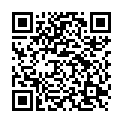|
|
|
| Module code: MBG21.S.32 |
|
3S (3 hours per week) |
|
3 |
| Semester: according to optional course list |
| Mandatory course: no |
Language of instruction:
German |
Assessment:
Course work
[updated 15.11.2021]
|
MBG21.S.32 Management and Professional Pedagogy in Health Care, Bachelor, ASPO 01.10.2021
, optional course, general subject, course inactive since 30.05.2024
|
45 class hours (= 33.75 clock hours) over a 15-week period.
The total student study time is 90 hours (equivalent to 3 ECTS credits).
There are therefore 56.25 hours available for class preparation and follow-up work and exam preparation.
|
Recommended prerequisites (modules):
MBG21-1 Academic Methodologies and Study Skills I
MBG21-10 Methodologies II
MBG21-15 Evidence-Based Medical Care and Nursing
MBG21-19 Academic Methodologies and Study Skills III
MBG21-6 Scientific Work II
MBG21-9 Methodologies I
[updated 30.05.2024]
|
Recommended as prerequisite for:
|
Module coordinator:
Studienleitung |
Lecturer:
Dr. Sindy Lautenschläger
[updated 30.05.2024]
|
Learning outcomes:
After successfully completing this module, students will have the following skills and competencies:
.
Knowledge and Comprehension:
Students will be able to explain the main goals and tasks of the Cochrane Collaboration.
They will be able to describe the steps resp. the research process of systematic reviews.
They will be able to explain the content of Summary of Findings tables and evidence tables (GRADE).
They will be able to describe guideline methodology, including the derivation of recommendations.
They will be able to identify the limitations of guidelines (e.g., timeliness of recommendations in recent studies, interdisciplinary preparation).
The Use, Application, and Generation of Knowledge:
Students will be able to systematically assess the bias potential of systematic reviews and meta-analyses using an appropriate assessment tool.
They will be able to interpret outcome data from Forests plots or other plots from meta-analyses.
They will be able to systematically evaluate guidelines using an appropriate assessment tool, appropriately assessing the quality of guidelines.
Communication and Cooperation:
They will be able to reflect upon and take into account the different perspectives of those involved/affected in joint discourse with their fellow students.
Scientific Self-Concept/Professionalism:
Students will have developed a critical attitude toward health care information.
[updated 15.11.2021]
|
Module content:
Systematic reviews:
Formulating review questions
Variations of population, interventions and endpoints
Variations in study design
Modifying your research question during the review process
Identifying relevant literature and extracting data
Carrying out a systematic literature search
Selecting relevant studies
Extracting data
Publication bias and other systematic distortions
Evaluating literature
Quality assessments in a review
Summarizing evidence
Narrative synthesis
Quantitative synthesis
Interpreting results
Recognizing forms of bias
Determining the significance of review results; Evidence profiles and practice recommendations
Guidelines:
Development
Structure
Content
Research
Critical evaluation
[updated 15.11.2021]
|
Teaching methods/Media:
Blended learning
[updated 15.11.2021]
|
Recommended or required reading:
Recommended literature will be announced at the beginning of the course.
[updated 15.11.2021]
|

